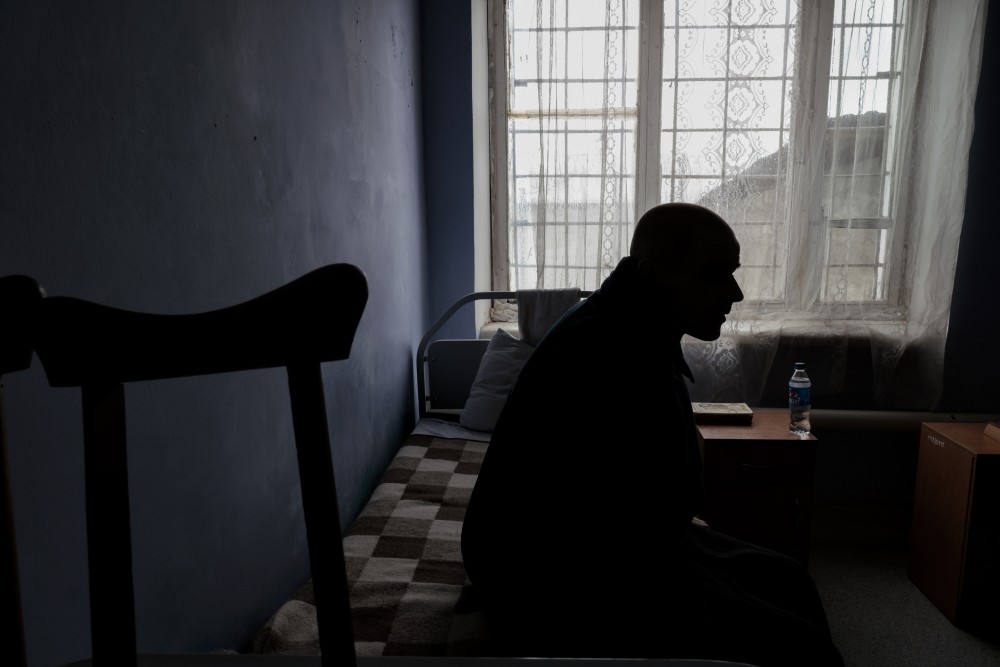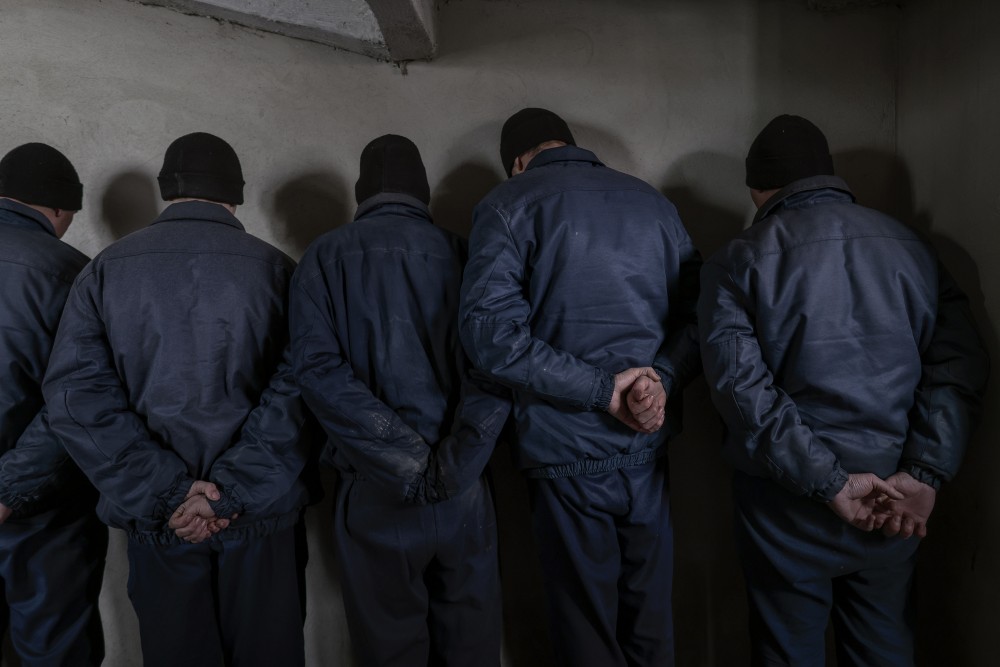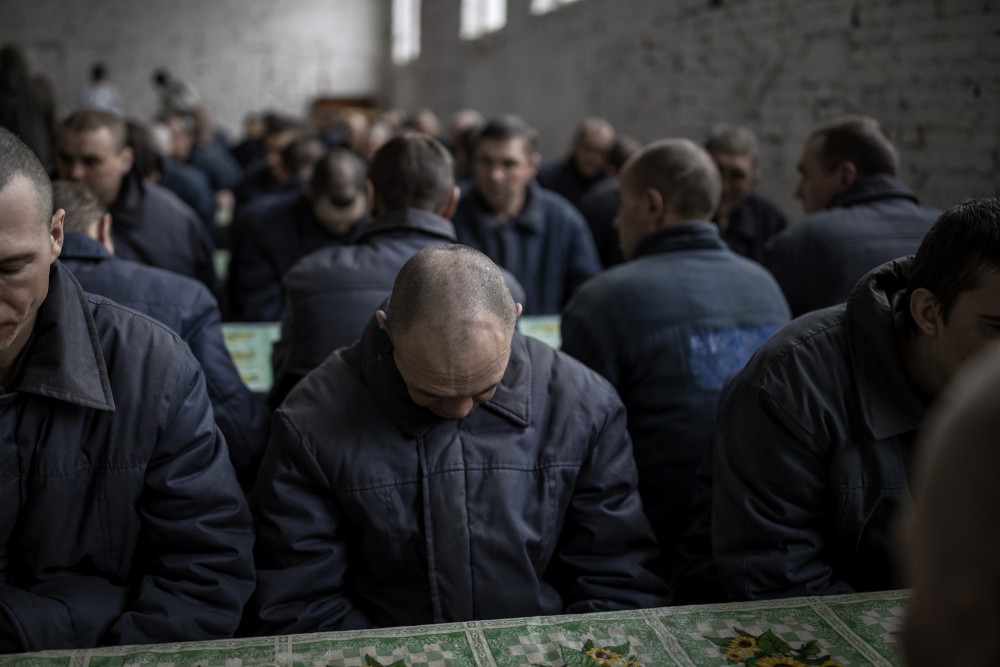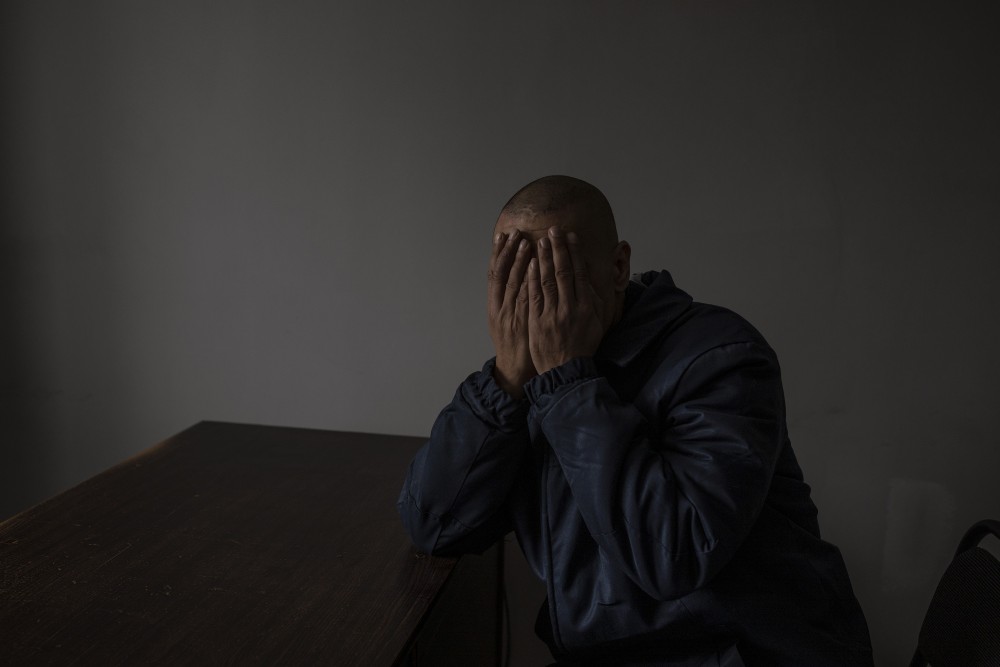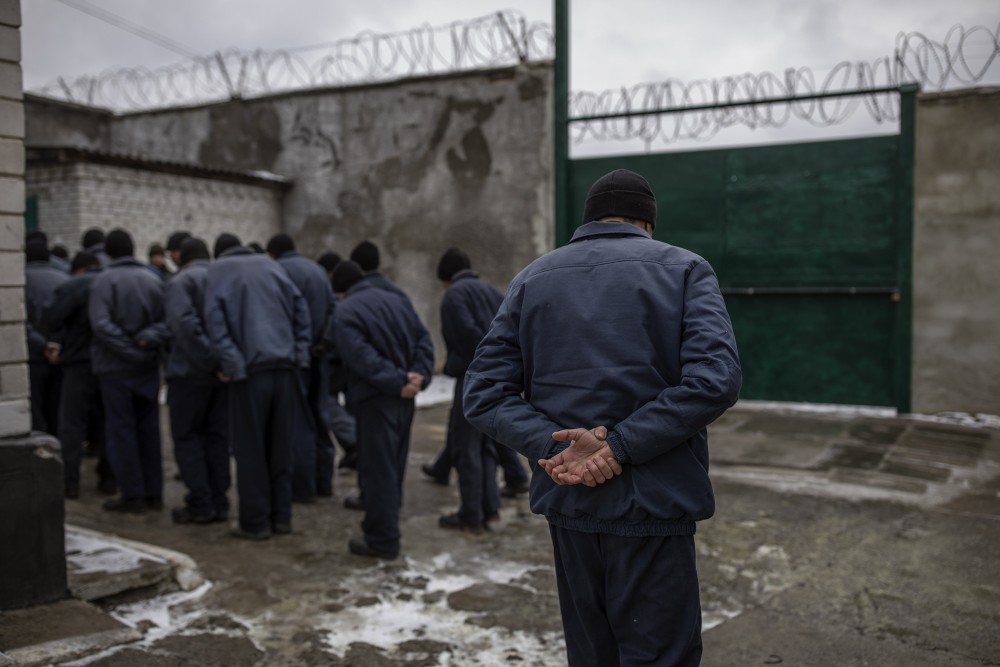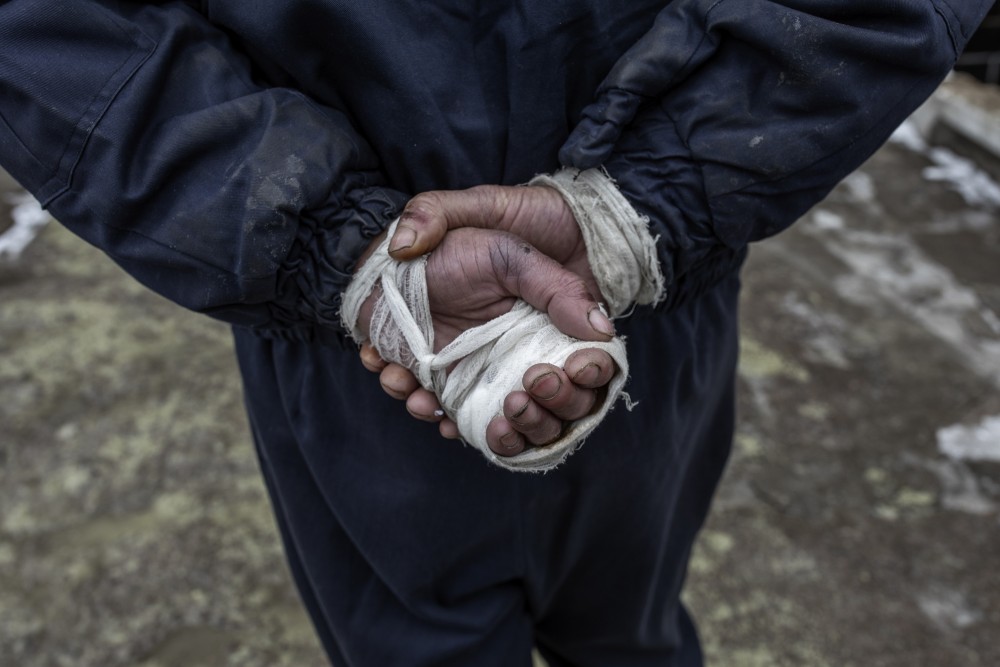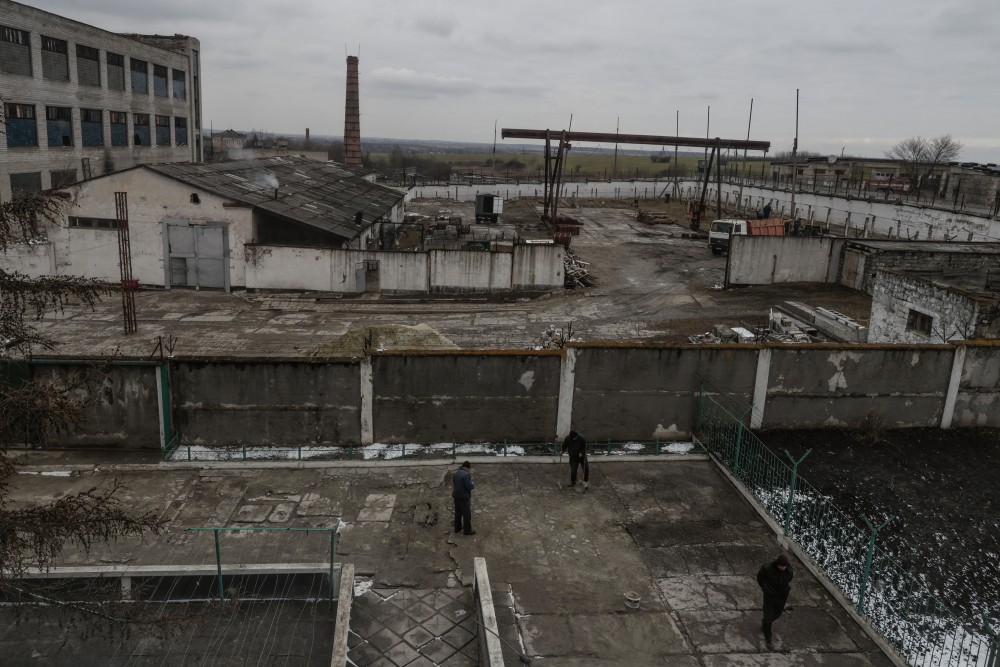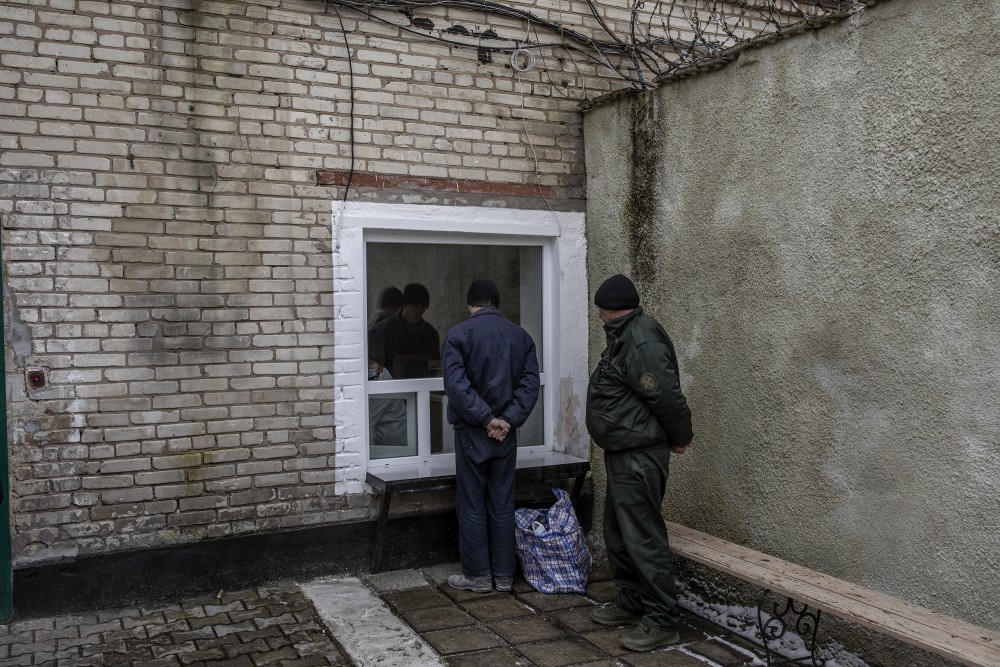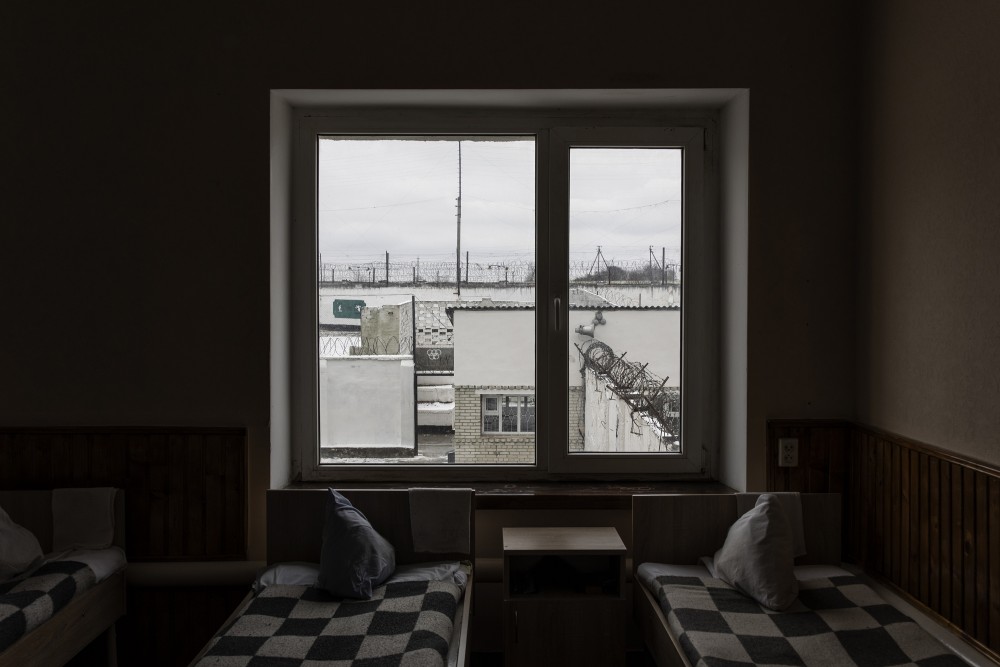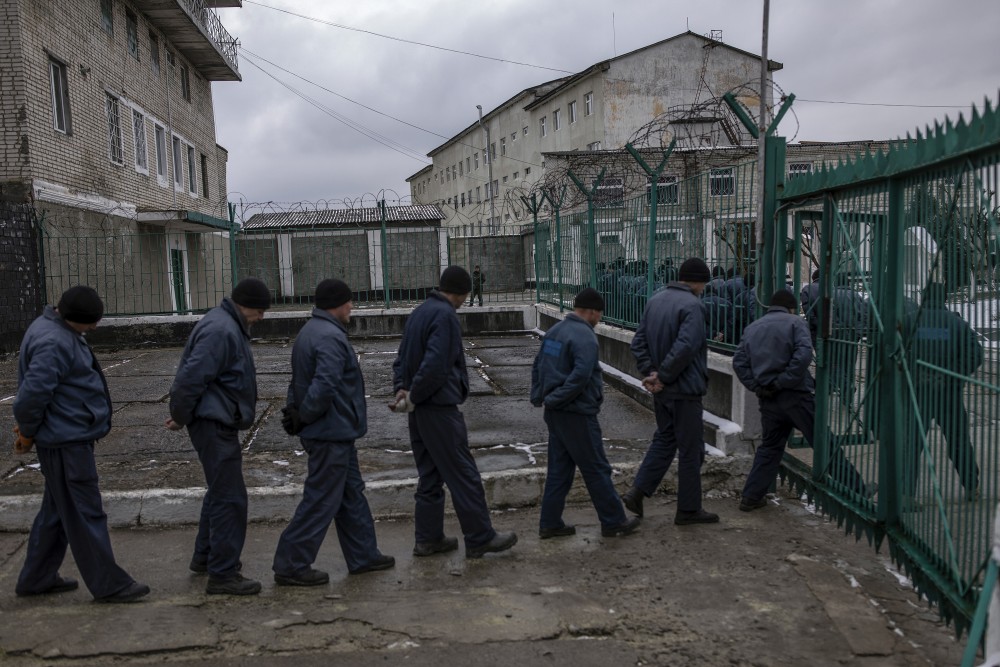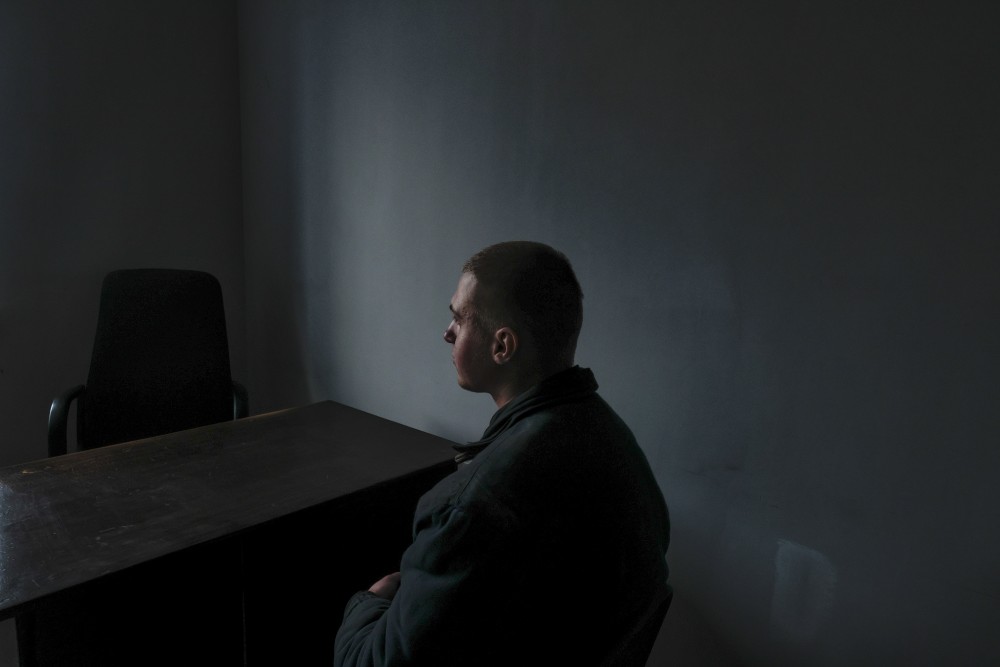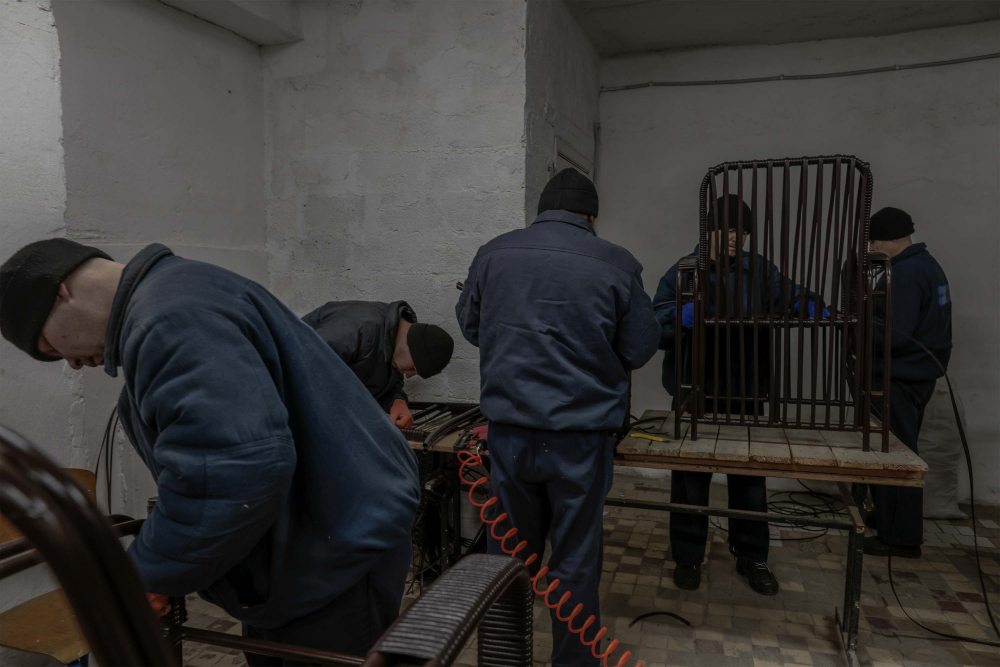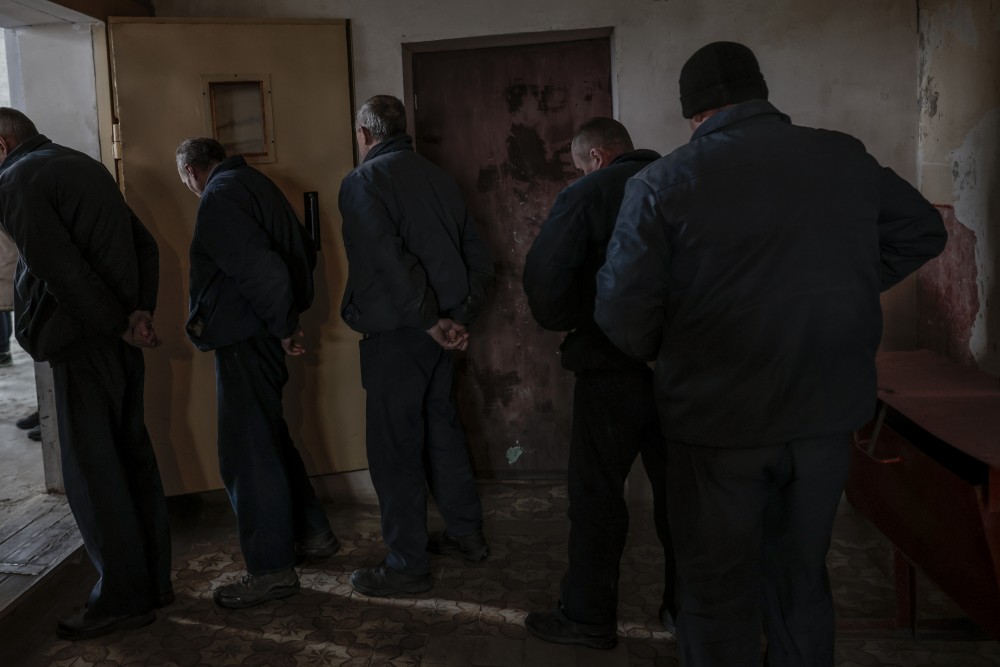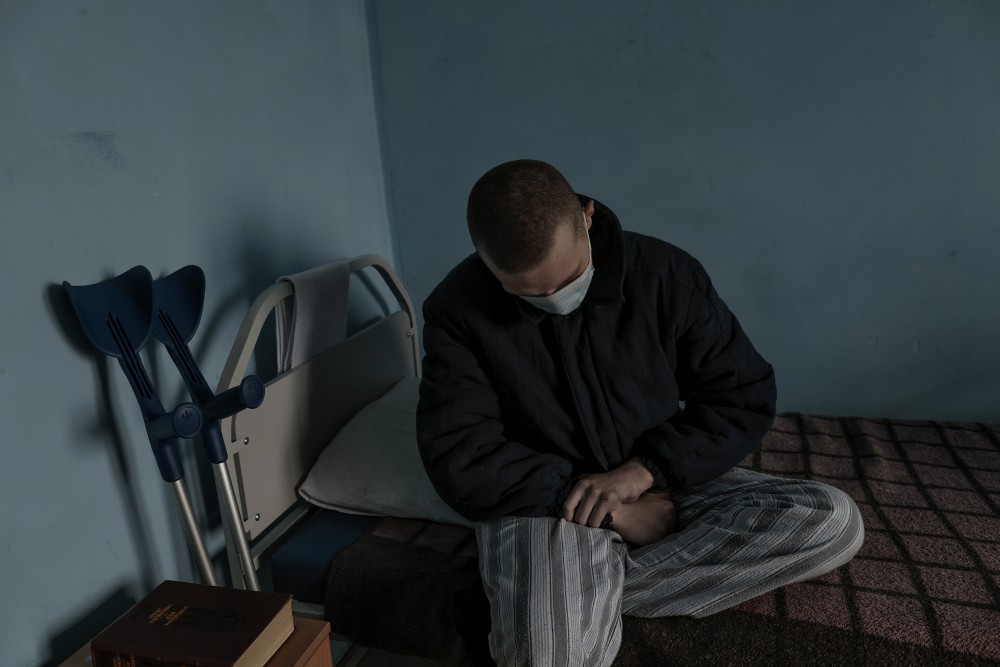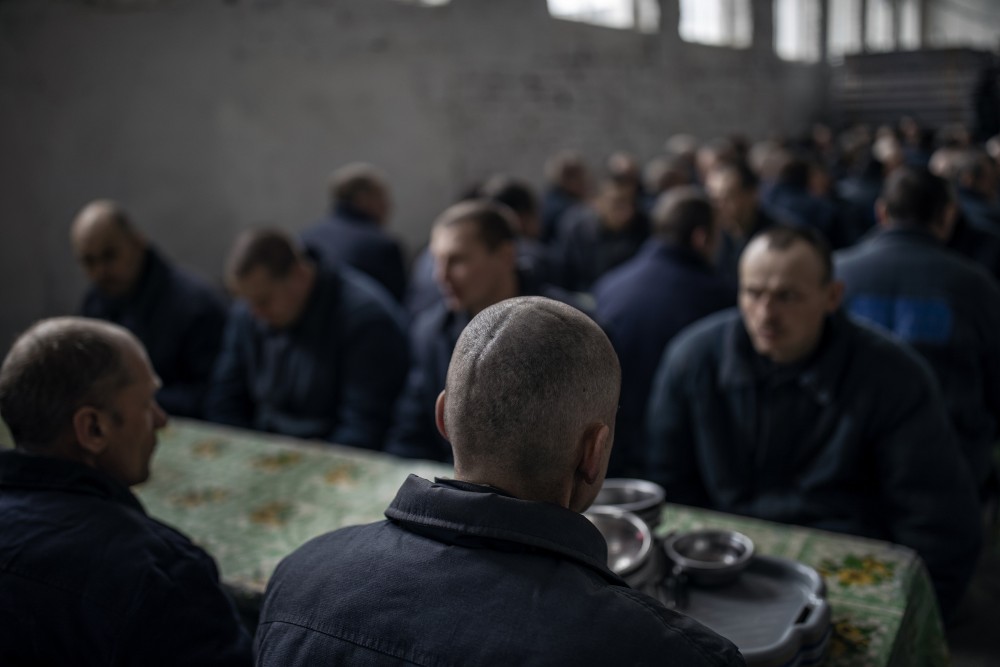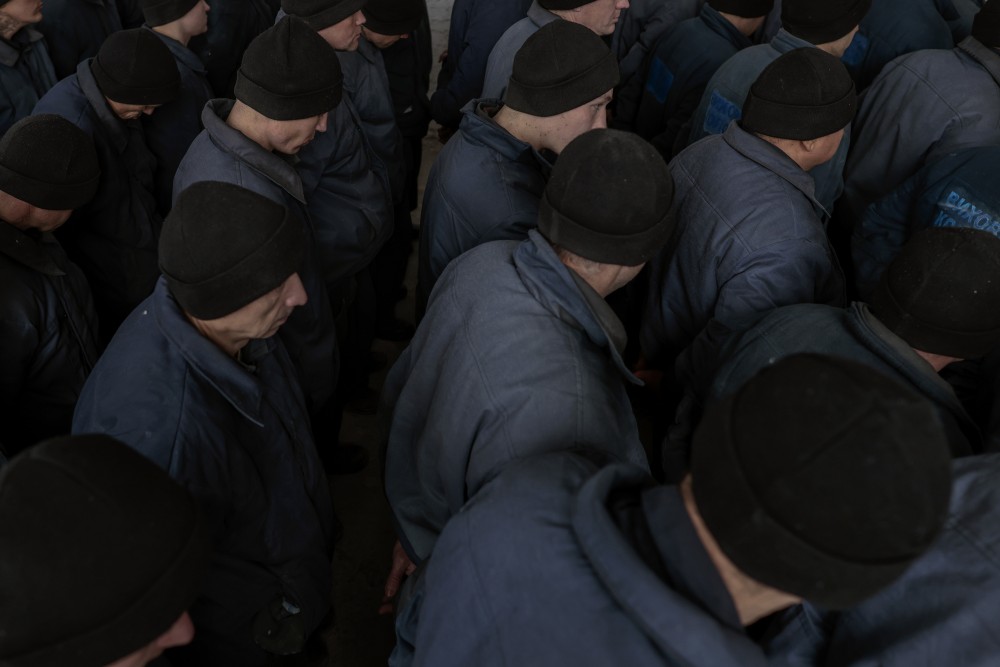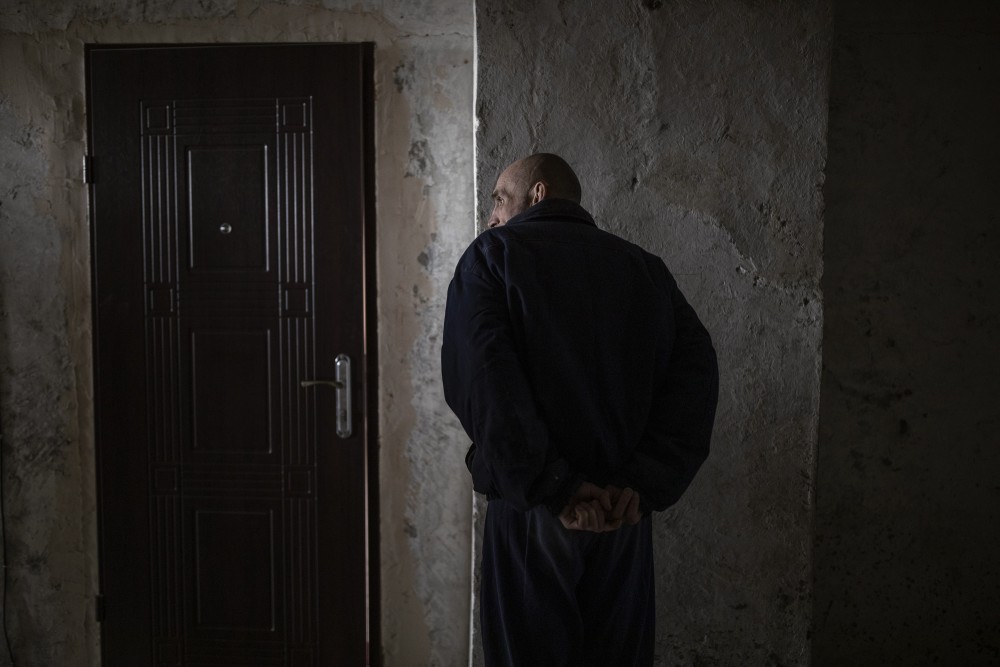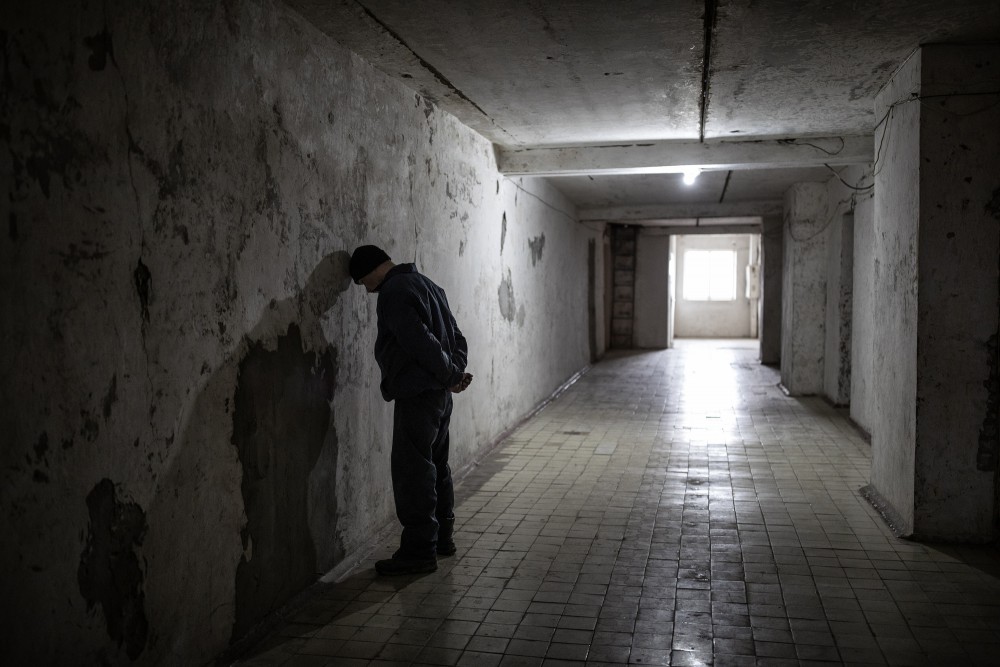Russian POWs in Ukraine
Ukraine | February 2023
“The defeated have their faces to the wall and their heads bowed, for that is the way of things in the prisoner of war camp. They hold their hands behind their backs as if bound by invisible handcuffs. Not a word escapes them; such is the rule. Along a dark corridor, cut by icy drafts, seventy-five men dressed in blue cloth jackets and black berets were marching in single file towards the mess hall when they abruptly came to a halt. No guard uttered a word. They turned towards the wall, fixing their gaze upon the streaks of condensation just ten centimeters from their eyes. These were the soldiers captured at the front, mostly Russians but also Ukrainians who had fought against Ukraine. Some rested their foreheads in exhaustion, in despair, perhaps to avoid thinking.” Fabio Tonacci for La Repubblica
One of the main facilities for Russian prisoners of war in Ukraine is located near Lviv in western Ukraine. This detention center is said to hold not only Russian soldiers but also mercenaries from the Wagner Group, a Russian private military company that has been active in the conflict in eastern Ukraine. The majority of Russian prisoners of war in Ukraine were captured on the front lines in the Donbas region, where fighting between Ukrainian government forces and Russian-backed separatists has been ongoing since 2014. Many of these prisoners were taken in battle, while others were captured during raids on separatist strongholds. The exact number of prisoners held by each side remains unclear. The process of prisoner exchange has been sporadic and difficult, with negotiations often breaking down over disagreements on the number and identity of prisoners to be released. Under the Geneva Conventions, prisoners of war are entitled to humane treatment, protection against acts of violence or intimidation, and the right to receive mail and care packages from their families. They must also be allowed to communicate with the International Committee of the Red Cross (ICRC), which serves as a neutral intermediary between prisoners of war and their captors. It is also important to note that the Geneva Conventions require respect for the privacy of prisoners to protect them from possible retaliation upon their return to their home country. It is worth noting that the treatment of Ukrainian prisoners of war detained in Russia appears to be somewhat better than that of Russian prisoners in Ukraine. Reports indicate that Ukrainian prisoners have been granted access to the ICRC, as well as to journalists, and are being held in facilities that meet basic standards of hygiene and nutrition. However, the situation in Russia remains largely opaque. It is important for the international community to remain vigilant in monitoring the treatment of prisoners of war, and to hold accountable any individuals or groups responsible for violating their rights. As the conflict in Ukraine continues, it is critical that the rights of all individuals, including prisoners of war, are respected and upheld. Failure to do so not only violates international law but also perpetuates the cycle of violence and undermines any hope for a peaceful resolution to the conflict.
